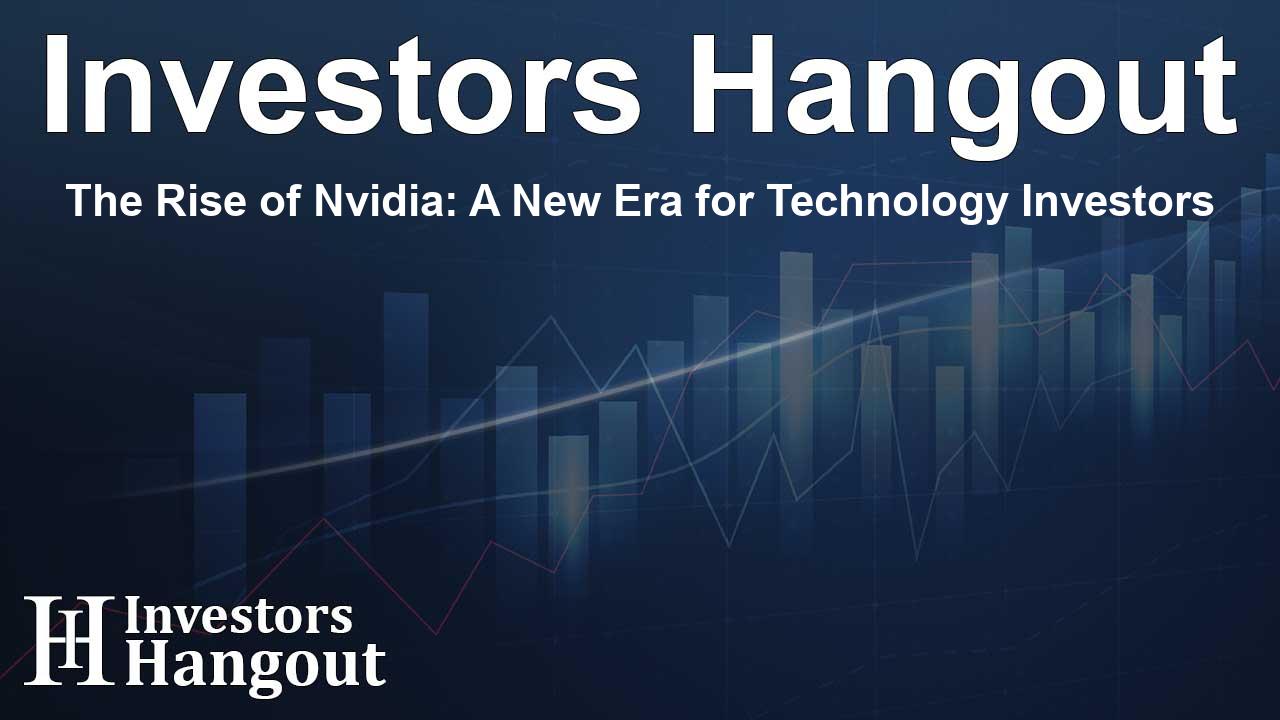The Rise of Nvidia: A New Era for Technology Investors

Understanding the Shift in the Semiconductor Landscape
In the ever-evolving semiconductor space, Intel (NASDAQ: INTC) is facing significant challenges. Once heralded as the leading chipmaker in the world, Intel's stock has plummeted over 60% this year, marking it as the worst performer on the Dow Jones Industrial Average. Intel's historical dominance in the personal computer sector was once unrivaled, allowing it to secure a place among the first tech giants in the esteemed Dow Jones index alongside Microsoft.
However, while Microsoft has successfully ventured into various profitable sectors, including artificial intelligence (AI) and cloud computing, Intel finds itself at a crossroads as competitors producing Arm-based chips begin to claim a larger share of the PC market.
Nvidia Emerges as a Leading Contender
Amidst Intel's struggles, Nvidia (NASDAQ: NVDA) has emerged as a strong competitor and a potential replacement within the Dow Jones framework. Known for its cutting-edge graphic processing units (GPUs), Nvidia's reputation has soared with the increasing demand for AI infrastructure. As tech giants race to build the data centers necessary to support AI technologies, Nvidia's GPUs form the backbone, commanding over 80% of the GPU market.
Nvidia's leadership stems not only from its innovative chip technology but also from its early development of CUDA, a software platform that has been instrumental for developers in GPU programming. This has established Nvidia with a significant edge in the industry.
The Expansion of Nvidia's Influence
Beyond its GPU capabilities, Nvidia has broadened its services through the acquisition of additional platforms and development of advanced technologies under the CUDA-X umbrella. Its multi-faceted approach allows it to cater to diverse industries beyond its traditional data center clientele, including gaming, cryptocurrency, and automotive sectors. This diversification strengthens Nvidia's market position and revenue streams.
The Dow Jones Inclusion Criteria
With the ongoing turbulence at Intel, discussions about Nvidia potentially replacing it in the Dow Jones are gaining traction. The Dow is a price-weighted index, which means that Nvidia's recent stock split may facilitate its inclusion, making its price more manageable for the index.
The criteria for a company to be added to the Dow include an excellent reputation, demonstrated sustained growth, and significant interest from investors, all of which Nvidia meets. Additionally, the Dow committee, composed of members from The Wall Street Journal and S&P Global, is likely to consider the growing significance of AI when evaluating which companies to include.
Market Reactions and Expectations for Nvidia
The prospect of Nvidia's inclusion in the Dow could signal positive recognition for the company, potentially bolstering its stock in the short term. However, analysts suggest that Nvidia's long-term performance will primarily depend on its continuous growth and innovation, regardless of the Dow index.
Evaluating Nvidia's Investment Potential
In terms of stock investment, Nvidia displays promising potential. Its robust growth outlook, combined with a strategic approach in various technology sectors, positions it as an attractive investment opportunity. Currently, Nvidia is trading at a forward price-to-earnings (P/E) ratio of approximately 27.4 and a price/earnings-to-growth (PEG) ratio of around 0.75, suggesting that it may be undervalued amidst the recent tech sell-off.
Is Now the Right Time to Invest in Nvidia?
Before making any investment decisions, it is essential to consider personal financial goals and market conditions. Nvidia's standing as a leader in the semiconductor industry, coupled with its strategic innovations and expanding market presence, makes it a compelling stock for those looking to enter the technology investment space or enhance their portfolios.
Frequently Asked Questions
What challenges is Intel currently facing?
Intel is struggling with a significant decline in stock performance and competition from advanced chip manufacturers, impacting its market position.
Why is Nvidia considered a strong competitor to Intel?
Nvidia has dominated the GPU market, especially with the rise of AI technologies, and is recognized for its innovative products and software platforms.
What are the implications of Nvidia's potential inclusion in the Dow Jones?
If Nvidia is added to the Dow Jones, it could enhance its visibility and acceptance among investors, potentially boosting its stock performance.
How does Nvidia support various industries apart from tech?
Nvidia's technologies are utilized in gaming, cryptocurrency, automotive sectors, and beyond, demonstrating its diverse market applications.
What should investors consider before investing in Nvidia?
Investors should evaluate their financial strategies and risk tolerance while considering Nvidia's growth potential in a volatile tech market.
About Investors Hangout
Investors Hangout is a leading online stock forum for financial discussion and learning, offering a wide range of free tools and resources. It draws in traders of all levels, who exchange market knowledge, investigate trading tactics, and keep an eye on industry developments in real time. Featuring financial articles, stock message boards, quotes, charts, company profiles, and live news updates. Through cooperative learning and a wealth of informational resources, it helps users from novices creating their first portfolios to experts honing their techniques. Join Investors Hangout today: https://investorshangout.com/
Disclaimer: The content of this article is solely for general informational purposes only; it does not represent legal, financial, or investment advice. Investors Hangout does not offer financial advice; the author is not a licensed financial advisor. Consult a qualified advisor before making any financial or investment decisions based on this article. The author's interpretation of publicly available data shapes the opinions presented here; as a result, they should not be taken as advice to purchase, sell, or hold any securities mentioned or any other investments. The author does not guarantee the accuracy, completeness, or timeliness of any material, providing it "as is." Information and market conditions may change; past performance is not indicative of future outcomes. If any of the material offered here is inaccurate, please contact us for corrections.